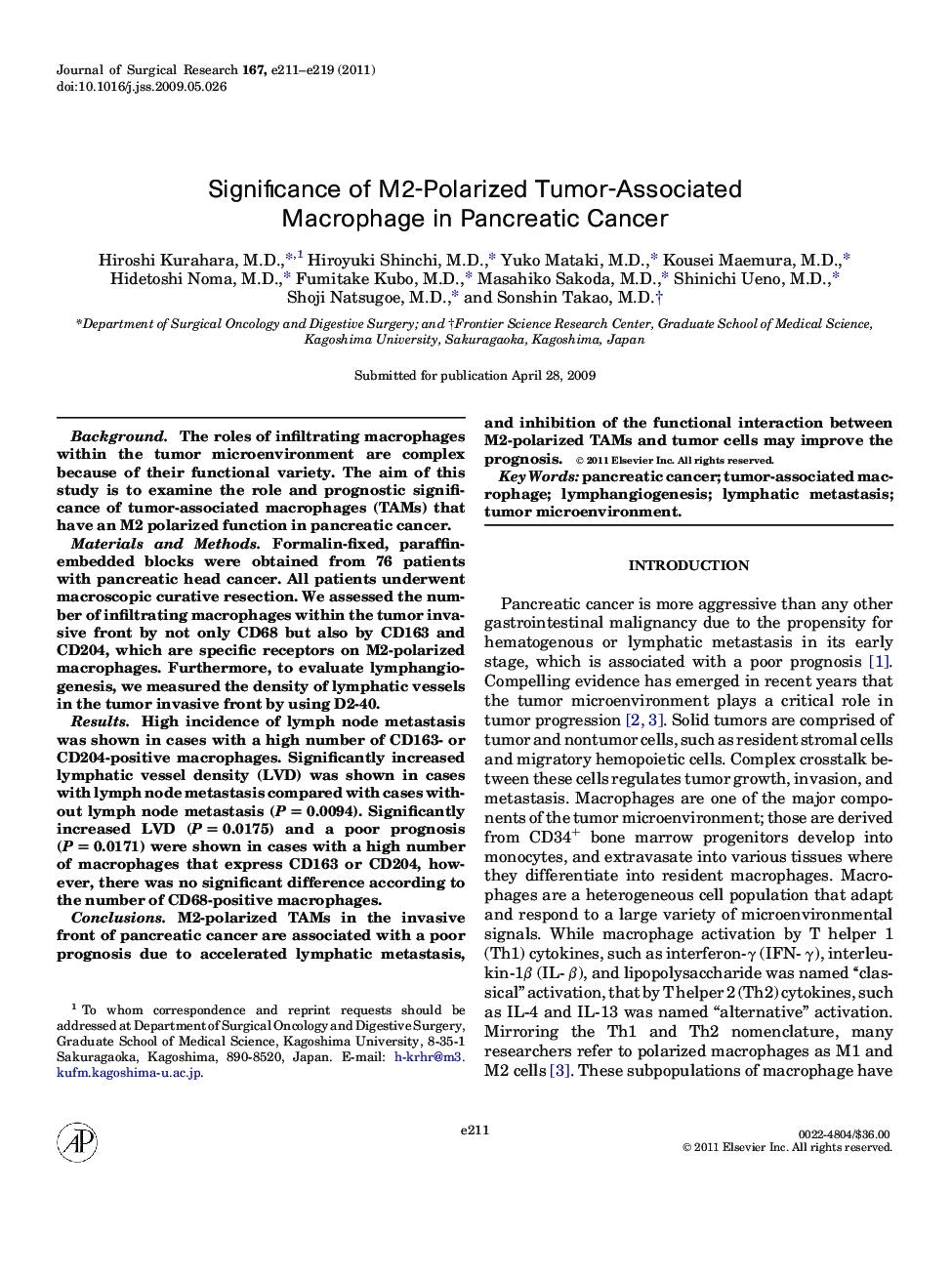| Article ID | Journal | Published Year | Pages | File Type |
|---|---|---|---|---|
| 4302543 | Journal of Surgical Research | 2011 | 9 Pages |
BackgroundThe roles of infiltrating macrophages within the tumor microenvironment are complex because of their functional variety. The aim of this study is to examine the role and prognostic significance of tumor-associated macrophages (TAMs) that have an M2 polarized function in pancreatic cancer.Materials and MethodsFormalin-fixed, paraffin-embedded blocks were obtained from 76 patients with pancreatic head cancer. All patients underwent macroscopic curative resection. We assessed the number of infiltrating macrophages within the tumor invasive front by not only CD68 but also by CD163 and CD204, which are specific receptors on M2-polarized macrophages. Furthermore, to evaluate lymphangiogenesis, we measured the density of lymphatic vessels in the tumor invasive front by using D2-40.ResultsHigh incidence of lymph node metastasis was shown in cases with a high number of CD163- or CD204-positive macrophages. Significantly increased lymphatic vessel density (LVD) was shown in cases with lymph node metastasis compared with cases without lymph node metastasis (P = 0.0094). Significantly increased LVD (P = 0.0175) and a poor prognosis (P = 0.0171) were shown in cases with a high number of macrophages that express CD163 or CD204, however, there was no significant difference according to the number of CD68-positive macrophages.ConclusionsM2-polarized TAMs in the invasive front of pancreatic cancer are associated with a poor prognosis due to accelerated lymphatic metastasis, and inhibition of the functional interaction between M2-polarized TAMs and tumor cells may improve the prognosis.
